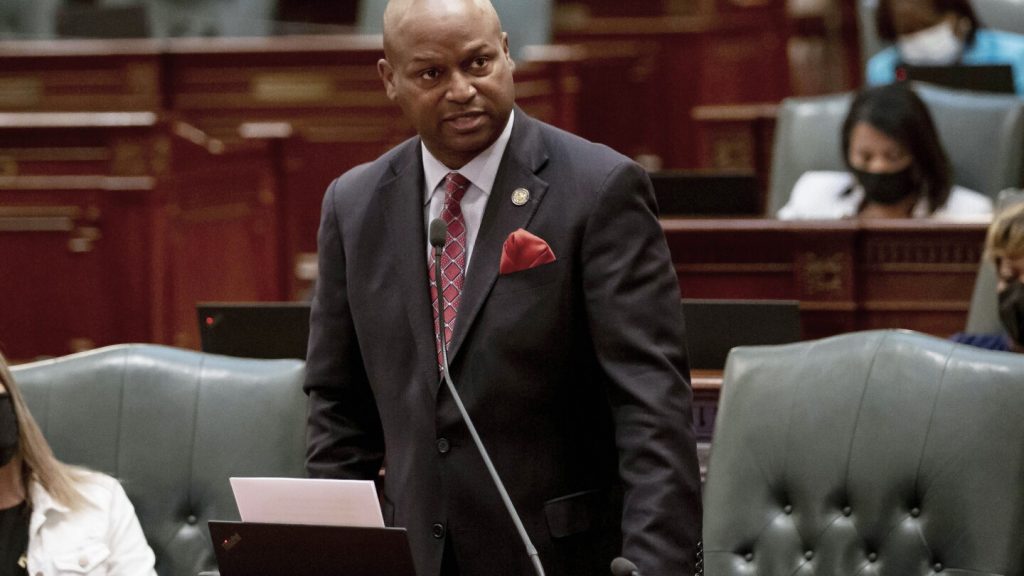The Illinois House speaker is facing a lawsuit filed by staff members demanding the right to negotiate working conditions as a union. The Illinois Legislative Staff Association filed the lawsuit in Cook County Circuit Court, seeking confirmation of their right to organize and bargain collectively, as guaranteed by an amendment to the state Constitution in 2022. The lawsuit also seeks injunctive relief compelling House Speaker Emanuel “Chris” Welch to engage in negotiations or for a mediator to intervene. The association claims that Welch has been resistant to negotiations since they first approached him in November 2022. Welch sponsored legislation last fall to allow staff to unionize, but it did not pass through the Senate and has faced criticism from the association for its delayed implementation until next year.
Members of the association criticized Welch for his lack of action on their negotiations, stating that while he publicly supported them in October, he has failed to engage in meaningful discussions since then. The association is made up of approximately 33 legislative coordinators, policy analysts, and communications specialists who work long hours for wages starting in the $40,000 range. They research and draft complex legislation, ensuring lawmakers are prepared to present and defend them, while also monitoring their progress and opposition. The movement for legislative staff unionization has gained momentum following the example set by Oregon legislative staff in 2021 and California’s endorsement of collective bargaining last fall. Recently, House and Senate Democratic staffers in Washington state have also filed paperwork to organize.
Welch, a Democrat from Hillside who has been in office since 2021, introduced legislation last fall to allow his staff to unionize, with a start date in July 2026. He cited state labor laws prohibiting unionization by public employees as the reason for the delay in implementation. However, the Senate did not take any action on the legislation, and the association pointed out that Welch’s staff previously stated they could not negotiate with employees unless their union was recognized by the Illinois State Labor Relations Board, which does not have jurisdiction over legislative staff. The association argues that Welch’s proposed legislation violates workers’ rights by delaying unionization until next year and creating barriers to bargaining. They also highlight the difficulties in negotiating with Republican caucus aides who are hired by a different employer.
A spokesperson for Welch, Jaclyn Driscoll, stated that no one in the speaker’s office had received a copy of the lawsuit and declined to comment on the matter. The ongoing dispute between Welch and legislative staff highlights the challenges faced by workers seeking to unionize in the public sector and the complexities of navigating state labor laws and regulations. The association’s lawsuit aims to secure their right to negotiate working conditions and collective bargaining, as well as to compel Welch to take steps towards negotiations or involve a mediator. The outcome of this legal battle could have implications for other legislative staff seeking to unionize across the country, as the movement continues to gain momentum in various states.
In the midst of these tensions between legislative staff and House Speaker Welch, the broader issue of workers’ rights and the power dynamics within state legislatures has come to the forefront. The lawsuit filed by the Illinois Legislative Staff Association sheds light on the challenges faced by employees seeking to organize and advocate for better working conditions in a public sector setting. The outcome of this legal battle could have implications for unionization efforts among legislative staff in other states, as well as for the broader labor movement seeking to protect workers’ rights and ensure fair treatment in the workplace. As the push for collective bargaining and unionization gains momentum across the country, the case in Illinois serves as a focal point for the ongoing struggle for workplace rights and the need for equitable treatment of all employees, including those working in state legislatures.


